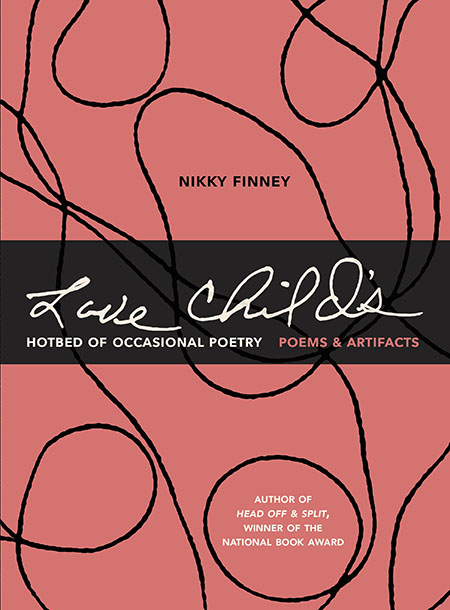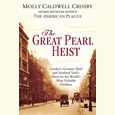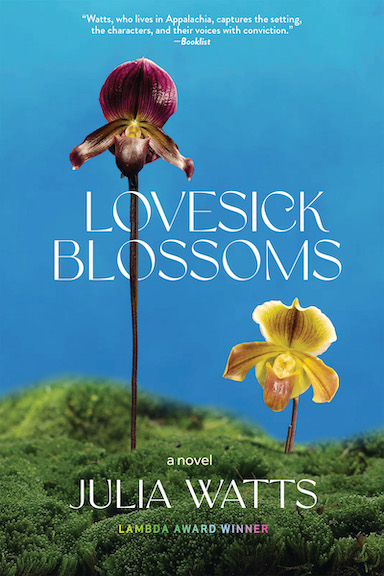The Story That Takes Hold
Ishmael Beah writes lyrically in Radiance of Tomorrow about a village recovering from the horrors of war
With his 2007 memoir, A Long Way Gone, Ishmael Beah gave voice to a horrendous problem in war-torn Africa: the child soldier. Kidnapped by rebel soldiers in 1991 from his native village in Sierra Leone, Beah was forced into a life of brutality and drug abuse. That life and his emergence from it become the subject of his first book and propelled him into the international spotlight as a spokesperson for children affected by war. In his first novel, Radiance of Tomorrow, Beah lyrically returns to the subject of war and its aftermath, chronicling survivors of a massacre in a fictional village as they struggle toward normal life.
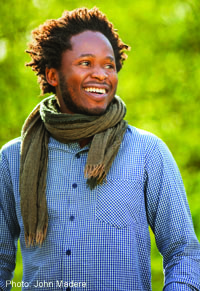 Prior to his appearance at the Southern Festival of Books, held in Nashville October 10-12, 2014, Beah recently answered questions from Chapter 16 via email.
Prior to his appearance at the Southern Festival of Books, held in Nashville October 10-12, 2014, Beah recently answered questions from Chapter 16 via email.
Chapter 16: In a forward to the novel, you speak of recreating the poetry of your native tongue, Mende, in English—an effort that clearly gives Radiance of Tomorrow its musical language. Have you heard from other Mende speakers since the novel was published? If so, how have they responded?
Ishmael Beah: I have indeed heard from other Mende speakers from home in Sierra Leone and in the United States. They expressed how the language in Radiance of Tomorrow made them revisit their childhood homes and appreciate even more the poetic nature and beauty of our mother tongue and culture. Some people talked about remembering their grandfathers and grandmothers, the moods and feelings of the language when they were children in comparison to today, especially in the capital city where the usage of languages such as Mende gets filled with English words, and of course this changes the mannerisms of the speakers.
Chapter 16: What challenges did you face as a writer in moving from memoir to fiction?
Beah: I wrote fiction before; short stories mostly. However this was the first time that I embarked on writing a novel. I wanted to discuss a much neglected but very important question about what happens after war. Why and how do people return home, the struggles of trying to return to the country and people they had been, to repair their traditions and find the simplicity that once defined them.
There was one commonality in writing a novel and a memoir, and that was the quest of finding the English equivalent of the many languages spoken in Sierra Leone. Both works were set in places with remarkable richness in language, gestures, sounds that were difficult to describe using the medium of English. I do like the challenge though and came out satisfied each time.
With the memoir, there were restrictions with the rendering of the timeline, but the beauty and reward was discovering that the experience had its own natural structure. It was also very personal and hence difficult emotionally to return to what had happened and relive it so as to bring it to life for the readers. On the other hand with fiction there was more freedom to play with language, timeline, and explore the imagination while looking at the many truths of all the characters involved. I could distance myself from things. I find joy in writing, so for me it doesn’t really matter whether it is fiction or nonfiction. The discovery of language intrigues me every time.
Chapter 16: Your memoir told the story of how you began to overcome your childhood experience of war. Radiance of Tomorrow tells the story of an entire village’s efforts to recover and grow from a terrible experience. To what extent is Imperi your village or other villages that you knew as a child?
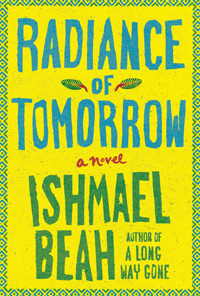 Beah: The novel was set in my country Sierra Leone. It was based on informal research and observation of others and myself and how we behaved in the new identity of our country. I created a world based on snippets of those interviews and the things I had witnessed during the creation of the novel. I believe fiction to be based on truth about a place, events and then the writer can move from those familiar places or things to the imagination. So the villages can be villages in Sierra Leone, in Central African Republic, in Democratic Republic of Congo, and other places I have been that had an influence on my imagination and creativity. Each of the characters in the novel is affected daily—at times almost moment to moment—by memories of war.
Beah: The novel was set in my country Sierra Leone. It was based on informal research and observation of others and myself and how we behaved in the new identity of our country. I created a world based on snippets of those interviews and the things I had witnessed during the creation of the novel. I believe fiction to be based on truth about a place, events and then the writer can move from those familiar places or things to the imagination. So the villages can be villages in Sierra Leone, in Central African Republic, in Democratic Republic of Congo, and other places I have been that had an influence on my imagination and creativity. Each of the characters in the novel is affected daily—at times almost moment to moment—by memories of war.
Chapter 16: To what degree do your own memories still affect your daily life in New York City? Have they been exacerbated by recent news of war in Iraq and Gaza?
Beah: In the novel, the characters are just retuning home after the war; thus the memories of the past are still quite fresh in their minds. Also, even if it has been a while, when you return to where a difficult situation has occurred your mind returns to that event. As for me, my memories of the war do not come up as frequently as they did before. This doesn’t mean that they aren’t there or that I have forgotten. I will never be able to do so. It is not possible. I just have other memories that compete with the ones of the war.
The news of the world is always heartbreaking these days, whether it is in Gaza, Iraq, South Sudan, Syria, Democratic Republic of Congo, the United States…. The list goes on and on. On some days, for my own sanity and to refresh my spirit, I do not look at or listen to the news. Perhaps the best way to describe how I feel about the world from time to time are the words of Mark Twain: “Such is the human race. Often it does seem such a pity that Noah and his party did not miss the boat.”
Chapter 16: On August 16, Sierra Leone President Ernest Bai Koroma called on the World Health Organization to do more to fight the Ebola outbreak that has killed nearly 350 people there, where recent floods have made medical care even more urgent. In your own view, what can the world do to help fight the disease?
Beah: Well, as usual, the world waits until a situation becomes a crisis before starting to do something about it. In addition, the narrative once again is one-sided, and West Africa—or generally the African continent— is presented in a fearful way, as though Ebola is an airborne disease. The news is always interested in the fear-mongering presentation, and that is exactly what is happening now. In terms of fighting the disease, well, the U.S. has the cure, so they should make it available to the rest of the world. I am not entirely sure what is complicated about it, as the medicine for Ebola has proven to be effective, and leaders from my country Sierra Leone, Liberia, Guinea, and others have repeatedly asked for it to be made available to their citizens.
Chapter 16: Your memoir has been widely adopted in college reading programs, which has made you a popular speaker on many campuses. How difficult if it to balance the life of a public speaker with the daily solitude of writing?
Beah: I have to make the time to write. I am a writer first and foremost. Public speaking is just a side thing that comes with writing, to promote my work. So I must create the time for the solitude, to think and enter the world of whatever story I am working on.
Chapter 16: Will you return to fiction for your next work?
Beah: We shall see. What I do know is that I will write about something that moves my spirit, as always. The form is a secondary thought. The most important thing is the story that takes hold of me and wants to come out.
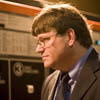
Michael Ray Taylor teaches journalism at Henderson State University in Arkadelphia, Arkansas. He is the author of three traditional books of nonfiction—Cave Passages, Dark Life, and Caves—as well as The Cat Manual, an ebook.
